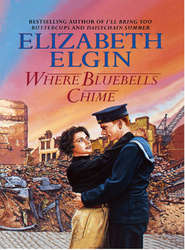По всем вопросам обращайтесь на: info@litportal.ru
(©) 2003-2024.
✖
Windflower Wedding
Автор
Год написания книги
2018
Настройки чтения
Размер шрифта
Высота строк
Поля
Now, in his room, he turned from the window and stared again at the neatly folded clothes; clothes, he supposed, that those in charge of such things would expect a French labourer to wear: well-worn trousers, a jacket and shirt, collar attached. Brown shoes which looked as if they would fit – he hadn’t tried them on yet – and a raincoat.
He snapped open the one good lock on the case to find underwear – none of it new but clean, at least – a pair of working trousers, overalls and a cap. He’d have bet on a beret, though he was now prepared to admit that the people here knew what they were about.
To complete Gaston Martin’s worldly goods were two towels and a spongebag – even that looked used – and inside the bag a razor, shaving soap, a toothbrush – new! – and a cake of dentifrice in a silver-coloured tin.
Before he left he would be given a cheap, French-made watch and franc notes and coins. Not too many, of course, because labourers weren’t expected to carry a lot of money. Gaston Martin probably lived from job to job within the boundaries of his work permit and what was left over from the purchase of his strictly rationed food, he would doubtless spend on wine. Red wine, Keth decided.
He made a note to ask more about his ration card. His food-ration documents bothered him almost as much as his claustrophopic mode of transport to an isolated inlet north of Biarritz.
He found himself wishing he had been allowed to bring a photograph of Daisy because in his present state of perplexity he found he could not bring her face into his mind’s eye, nor hear her voice nor her laugh at will. Something to do with shock, he supposed, or apprehension, or a mix of both. All he could remember was the way her hair slipped through his fingers and the feel of her lips on his. Her face, though, and her voice were gone from his rememberings. What a mess. What a damn-awful mess!
He reached for his cap and slammed shut the door of his room behind him. He needed to walk. He would walk around and around the grounds until some perplexed sentry asked him what he was about. And when he was tired of walking, he would write to his mother and again to Daisy; tell her how much he loved her and wanted her. Hell, how he wanted her!
Briefly he returned the salute of the sentry on the garden door, then stuffing his hands into his trouser pockets in a most unsoldierly way, began to walk along the crunching, gravelled paths in the direction of the distant hills, wondering just how near to them he would get before being stopped.
What was Daisy doing now? His diary was at Castle McLeish so he had lost track of her watches. The wireless was freely available here, so he was fairly sure there had been no air raids on either Liverpool or London.
He kicked out at a stone on the short-cut grass beside the path, trying yet again to bring Daisy’s face, her smile, into focus. But she remained elusive, so he straightened his shoulders, set his arms at an easy swing, and began to walk the boundaries of the grounds.
So he was nervous and apprehensive, but who in his right mind wouldn’t be? He was a mathematician, a back-room boy. He was a breaker of codes and not one iota brave. Not for him flying a bomber over Germany in the blackout; not for him prowling the seas in a submarine nor dropping out of a plane at the end of a parachute. He was lucky that he knew his limitations and being brave – foolhardy – was not one of them.
So he was going to occupied France and knew now where he would be put ashore and that he would be picked up and hidden away until he was needed. He was not being asked to take undue risks. Even the Enigma machine would be brought to him by some foolish brave man – or woman. Then he would be brought out again with the precious package and if he couldn’t do something as uncomplicated as that for Daisy; do it, even, for the merchant seamen who risked their lives every time they left port, then it was a poor lookout.
Wherever you are, my darling, he whispered with his heart, it’s going to be all right for us. I’m all kinds of a fool, but we will be married on my next leave and nothing on the face of the earth will stop us because I love you, love you!
It was then that it all came right and he was able to recall her smile, hear the softness of her voice as she whispered that she loved him too; that she would always love him and yes, they would be married. Very soon.
It was at times like this, he insisted as he walked briskly back to the forbidding stone house that was forbidding no longer, that he had to believe. But believe in who, or what? In God, perhaps; in miracles? On this early October afternoon he needed to believe in miracles and yes, in God too. It was all down, he supposed, to loving Daisy so much and if conditions meant taking a calculated risk, then she was worth it.
He was going to France and coming safely back! Oh, too damn right he was!
‘So how did things go, last night?’ Sparrow demanded as they cleared the table after supper. She was downright curious if only because Tatiana had volunteered nothing on her return from the theatre – except that the music had been lovely.
‘Just fine,’ Tatiana shrugged.
‘And you didn’t get yourself upset?’
‘Of course not. Why should I?’
‘No reason at all – except that you are upset! Is it the new one – the blind one? Did you find it all too much?’
‘No, Sparrow. Oh, no.’
‘Then tell me.’ She filled the bowl with water then added a fist of washing soda. ‘Because the first time you took an airman out you were full of it, and wanted to go on helping Joannie’s lot.’
‘And I still want to.’ Tatiana watched, fascinated, as the older woman lathered a block of primrose soap into a sud. ‘I really do. It was just that – well, it all seemed so spooky. Not spooky-frightening but spooky-strange, sort of. And rather nice.’
Sparrow continued her lathering without comment, agitating the water into bubbles.
‘You see, Sparrow, I’m trying to tell myself that something wonderful hasn’t happened – and it has. I told you about Tim?’
‘Y-yes.’
‘Well last night it wasn’t Tim, exactly. He was called Bill Benson. And he was Scottish and just about Tim’s height. And he had fair hair, too, and –’
‘And he was an air-gunner, like your Tim was?’
‘Yes.’ She picked up a plate, drying it ponderously. ‘It threw me, at first.’
For just a little while it had been too much to accept. It got so out of hand that in the dimness of the theatre, when Bill leaned close to whisper to her, he sounded so much like Tim she had wanted to get away; push past everyone, run out and never go back.
‘So now you’re going to pretend it’s your young man come back to you with his face burned?’
‘No, Sparrow! Don’t say that! It’s cruel!’
‘It’s fact, girl, and you’re being morbid! Your young man hasn’t come back. The one you took to the theatre last night wasn’t Tim. And I’m not being cruel about their poor faces. Far from it. I think they should all have a medal, Lord love them! But don’t get entangled, Tatiana. Your mother put you in my care and I won’t have you getting yourself upset all over again. And maybe this Bill has a young lady – maybe even a wife. Did you think to ask?’
‘I didn’t, Sparrow, because it isn’t important,’ she said softly, though she knew as soon as she spoke that it was important because she was so certain in her dreamings that the young man who sat beside her had some part of Tim in him, that she had wanted to reach for his hand, entwine her fingers in his, just as she and Tim always did in the intimate, shoulder-to-shoulder darkness of Creesby picture house. Would have, only a voice, very much like Sparrow’s, had called a warning, and she was forced to tell herself it was not Tim who sat beside her and that even to think such a thing was being unfaithful to his memory.
But for just a moment, until she regained control of her feelings, Tim had not died in a crashed bomber on Holdenby Pike. Tim survived, dreadfully burned and blinded, too, her foolish heart insisted, and had come back with a different name. And even his name was uncanny. Tim Thomson. Bill Benson. Even the cadence was there.
‘Well, if it isn’t important, you’ll maybe stop trying to rub the pattern orf that plate and shift yourself so we’ll be done in time to listen to Tommy Handley! And maybe it’d be better if our Joannie sent you someone different next time.’
‘No!’ She said it much, much too quickly. ‘I mean – well, I promised Bill and Sam I’d see them both again next week. We got on well together the three of us, and Sam is such a help with Bill. I couldn’t go back on my word, Sparrow. Not the word of a Sutton.’
‘Well, if you say so. Only don’t go filling your head with day dreams or you’ll get hurt again – especially if he’s married. And there was a letter for you from Liverpool. I left it on the hall table. Did you see it?’
Sparrow knew Daisy’s handwriting; had known Daisy since she was a little thing in her mother’s arms, and living in Hampshire.
‘Sorry – I didn’t look, actually. I’ll read it later. And don’t worry about me, Sparrow – though I’m glad, really, that you do. It was just that meeting Bill Benson last night was a bit of shock, that’s all. I’m fine now. It’s all under control. I know what I’m doing.’
But did she know what she was doing, she thought that night as she lay snug and cosseted in bed and thought about Tim Thomson and Bill Benson. Because she didn’t know what she was doing if she were scrupulously honest, and to say she did was like spitting into the wind, which was a very unladylike thing to do – apart from being messy!
She turned over with an exaggerated sigh, then plumped up her pillows. Frightening though that meeting had been, she knew there could never, ever, be another man in her life after Tim. And that was a pity, really, because never to be able to fall in love again was a terrible thing to have to accept; like becoming a nun and not being able to go back on your word.
But those three wonderful months she and Tim spent together were worth a lifetime of being alone. Indeed she was, she thought, very lucky to have met Tim at all. If she hadn’t gone to the dance at Holdenby Moor aerodrome she would never have have known the joy of loving completely and being completely loved in return.
She smiled softly and sadly and said good night to Tim as she always did, then made her mind a blank, because she must not think about Bill Benson. Perhaps Sparrow was right and Joannie should ask some other volunteer to take him out on the town.
Trouble was, she had promised, and anyway, next week she would most probably wonder why she had ever thought Bill Benson was in the least like Tim. There could never be another Tim Thomson. Not ever. It was as simple – and awful – as that.
Drew and Kitty leaned against the landing-stage railings, thighs touching, hands clasped, gazing across the river to the Cheshire side. Sharp against the skyline the jagged outlines of bombed buildings were gentled by a setting sun that scattered the river with a sparkle of rubies.
‘Kind of beautiful, isn’t it?’ She smiled up at him. ‘If it wasn’t so sad, I mean. Wish I could paint. It’s so dramatic.’
‘Then I’m glad you can’t because knowing you, your canvases would either be terrible, or very good indeed.’
‘And in this case,’ she pointed to the wartime skyline, ‘scary. Y’know, honey, it’s like we’re standing back, looking at something we’ve no power to do anything about; all of us puppets, having our strings pulled.’











